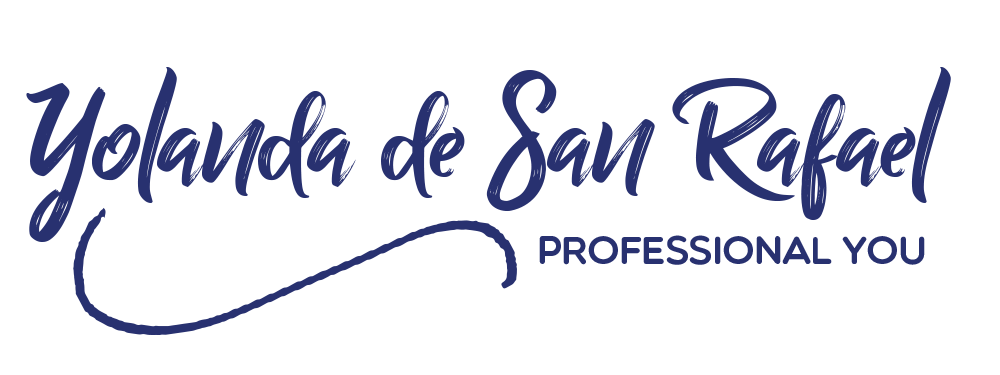This article claims that the language of Shakespeare, Emily Dickinson, Charles Dickens, Mary Shelley, Barack Obama, and Steve Jobs, among others, is considered our current global language, and it is especially powerful for business and branding purposes.
In other words, I defend the proposition that professional competences (in English) can be considered a successful pathway to executive development. To put it in a nutshell, speaking English is one of the most relevant and efficient ways to hold yourself to a higher career standard and this strategy will lead to an excellent positioning of your professional identity and added value.
All of us need to understand the importance of branding. We are CEOs of our own companies: Me Inc. To be in business today, our most important job is to be head marketer for the brand called You. – Tom Peters
English and your Unique YOU:
I happened to discover the engaging world of personal branding by chance, and it was indeed a fascinating opportunity when I met Cristina Mulero. As she brilliantly outlines in her book Saltar de la Pecera, there is a subtle connection between her work’s main character, Gabriel, and his will to improve his English. The relation between the concept of personal brand and English as a second language deserves some attention and it is a great pleasure for me to write this article.
A new paradigm is emerging, in which being proficient in English and working on your personal brand strategy will give you the opportunity of entering the group of desirable candidates for interesting and well-paid jobs. Furthermore, when building your brand identity you are supposed to be able to capture the essence of your company and, by the same token, give a clear and solid statement of your value proposition.
That said, why not explore a new and unique perceived value for your customers?
Why not dare to apply for the job of your dreams abroad?
Why not be brave enough to start an action plan now to improve and master the basic English communicative skills that will propel you towards your desired post?
I have designed a SWOT analysis which can yield the answer we are all looking for:
INVESTING IN YOUR ENGLISH ACHIEVEMENT:
| Strengths:
Professional and personal evolution. |
Weaknesses:
None if your are you committed to the challenge. |
| Opportunities:
Being eligible for your dreamed job or new post; embracing international customers. |
Threats:
Not taking action, quitting, being left behind by your peers. |
Therefore, if one reflects on the pros and cons of this scheme, it is clear that we are ready to add new linguistic tools to the ones already included in brand marketing projects. Not surprisingly, researchers agree on the idea that learning foreign languages is a magnificent exercise for our brain.
We shape our tools and afterwards our tools shape us.
– Marshall McLuhan
A real need
Still, you may wonder “Do we really need English?”. In this sense let me pinpoint some information that will shed some light on my proposition. In the newspaper La Vanguardia, the article “Ocho de cada 10 ofertas laborales exige inglés, pero ¿cumplen los españoles este requisito?” (2016) offers a Ranstad Study which shows that those with intermediate or advanced skills are more likely to find the position they are looking for. Again, in a new report described recently on the prestigious portal Universia, Ranstad concludes that a good level of English widens your labour prospects.
If we focus now on an academic perspective, the book “English as a global Language” (2003) by the acclaimed linguist David Crystal, explained the potential of English as our international language. He was proved right. Today, we can listen to online lessons by the same author who reveals relevant facts for this “global award”.
Apart from linguistic fashions or tendencies that overwhelm Spanish Media with anglicisms or really weird expressions, such as the name of the detergent “Kalia Vanish Oxy Action Crystal White”, advertising and business strategies are so intertwined that a new service is said to be more engaging if English words are used, e.g.: DataLAb.
Five linguistic goals
Human Resources procedures are concerned with five items that have to be translated and presented in English when required (and, beware, this is becoming more and more common)
- Your CV or resumé
- Your cover letter
- The job interview and/or a personal presentation
- Your “elevator pitch”
- A commercial or business presentation
If you work on the aforementioned five linguistic goals and get ready for them, your new brand will bend itself towards a global brand, so that devoting yourself to this language challenge will provide you with enjoyment and excellent moments.
Divide each difficulty into as many parts as is feasible and necessary to resolve it.
– René Descartes (Discourse on Method)
The pending subject myth
Whether you are a graduate, an entrepreneur or a business person, you will probably agree on the fact that your professional identity is closely linked to English. This being the case, it is somewhat surprising to consider “the no. 1 language on the Internet” a tricky barrier.
As such, the pending subject concern combines fear of speaking along with the frustration that arises when you realise that English is requested almost everywhere. Nevertheless, we highlight its power as a branding killer and personal empowerment technique for your future professional development.
But, how can I do it? You can certainly start by following an action plan which can be divided into micro linguistic actions so that learning is done on a progressive, stress-free basis. Fortunately, when it comes to the learning abilities question, we know that attitude is much more important than aptitude.
Thus, my hypothesis is summarized as follows:
- Improving your English level will definitely reinforce your brand.
- If we understand English as a challenge our learning process will be quicker and more fun.
- English for Professional Purposes (as a branch of English for Specific Purposes Studies) is particularly useful for lifelong learning processes and their research and interest have grown tremendously.
No wonder, this methodology helps us work with language for specific communities in specific contexts. Tutoring will add to the success of the whole process and will cope with the flaws (results are being tested in my workshops and mentoring programmes). When the questions “How do you differentiate from the others? or “Why should I have to hire you?” are raised, you will be proud to unveil a distinctive feature. Let’s spread the word and sharpen our professional skills.
It always seems imposible until it’s done
– Nelson Mandela
Reinforce your brand
To conclude, this is a compelling topic that deserves much more attention from different academic and business scenarios. I hope that branding experts in Spain join my new campaign in favour of adjusting our focus towards English as I strongly believe that this global language, our current lingua franca, is one of the most powerful tools for our professional improvement.
I claim that it is possible for Spanish people to fall in love with English if, every time we pronounce, write or listen to one of its words, we think that it is a breakthrough solution to your higher Professional YOU. Spain excels at creation and passion, so why not be fear-free as far as language achievement is concerned?
As top sports tennis player and perfect Spanish branding ambassador Rafa Nadal puts it “Work hard, enjoy and make it happen”. Personally, I see no limits in this suggested connection, English and branding strategy. Therefore, let me coin, after George Clooney, a new version of Nespresso’s excellent slogan that distills the message I want to share with all the readers of this blog: “English, what else?”
Further reading:
Literature:
- The International Journal of English for Specific Purposes.
- ALCARAZ VARÓ, Enrique “El inglés profesional y académico” (Alianza Editorial, 2014)
- CRYSTAL, David “English as a global Language” (Cambridge University Press, 2003)
- MULERO, Cristina “Saltar de la Pecera. Una Historia de Marca Personal” (Editorial Círculo Rojo, 2017)
- SANCHEZ-MATEO, Yolanda “El inglés como reto”. Comunicación presentada en las XIV Jornadas de Redes de Investigación en Docencia Universitaria – REDES 2017 I Workshop Internacional de Innovación en Enseñanza Superior y TIC – INNOVAESTIC 2017 1-2/06/2017, Universidad de Alicante
Links
- https://ed.ted.com/on/kwoDf5Fx
- http://www.lavanguardia.com/vangdata/20160405/40891405378/trabajadores-espanoles-idioma-ingles-
- http://noticias.universia.edu.pe/en-portada/noticia/2011/07/04/842796/importancia-ingles-mundo-laboral.html
(This article was first published on http://cristinamulero.es/english-a-powerful-tool-for-your-branding-strategy/)
Related Posts
abril 30, 2022
Mujeres que inspiran (5): entrevista a Carmen Mateo Ortiz.
Hoy os presento a Carmen Mateo Ortiz.…



